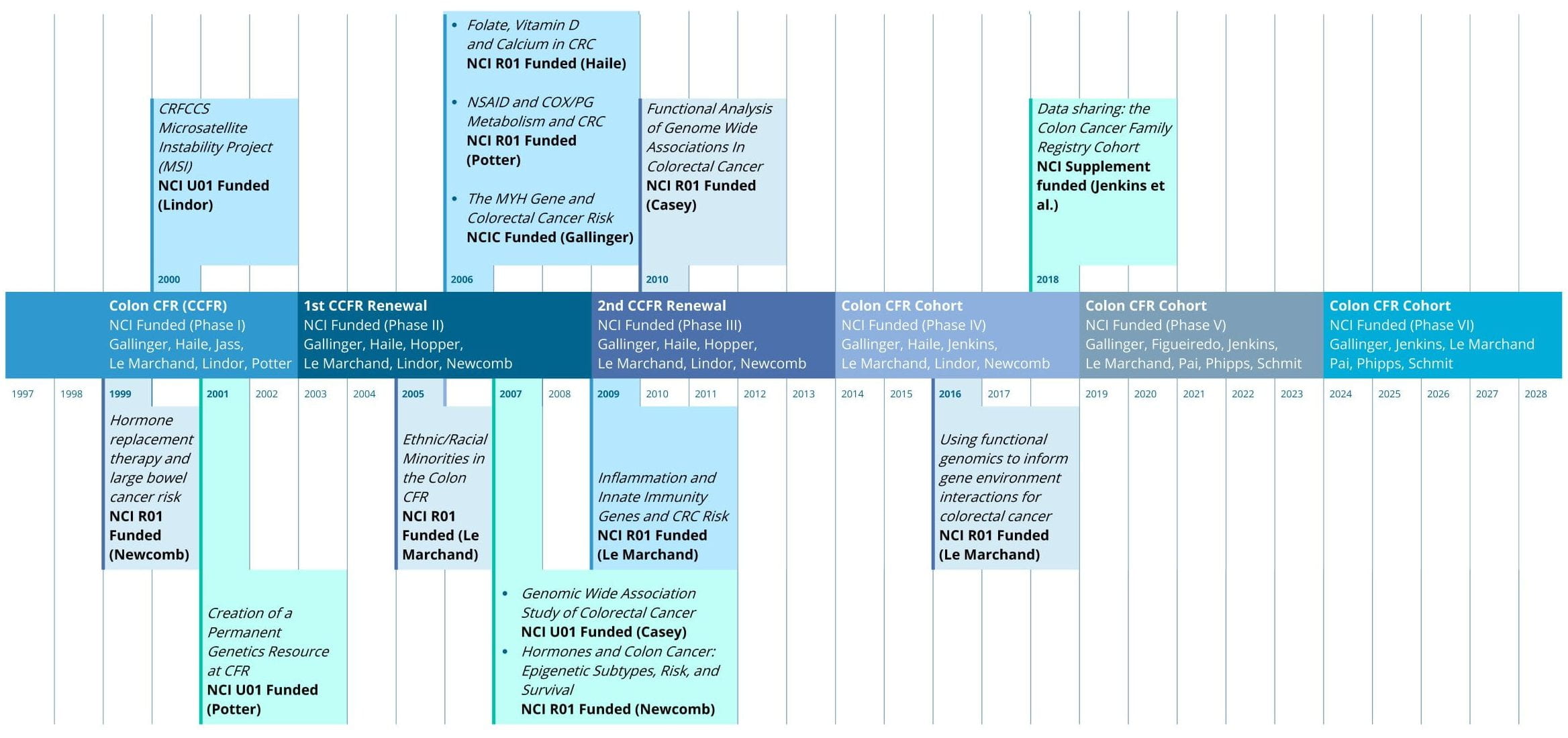Mission Statement
In 1996, as a commitment to reduce morbidity and mortality from this disease, the National Cancer Institute (NCI) of the U.S. National Institutes of Health funded the Colon CFR under the ‘Cooperative Family Registry for Colorectal Cancer Studies’. The main aims were: to collect pedigree information, epidemiological data and related biological specimens from participants with and without colorectal cancer and with and without a family history of the disease, as a resource for interdisciplinary studies on the aetiology of colorectal cancer; and to identify a population at high risk of colorectal cancer that could benefit from preventive strategies.
Our History
Since 1998, participants have participated as members of families recruited in the USA, Canada, Australia and New Zealand. At recruitment participants have completed a detailed questionnaire providing demographic data, potential risk factors, medical history and family history of cancer. They have also donated a blood sample, granted access to their medical history of cancer and screening medical, and access to any stored cancer tissue collected at the time of any cancer diagnoses. Every five years, participants have completed a short follow-up questionnaire to update their cancer, screening, and family history. There are essentially two cohorts: a survival cohort of over 11,500 people with a previous diagnosis of colorectal cancer (the survivors)—75% of whom were recruited shortly after their first diagnosis of colorectal cancer; and an unaffected cohort of 25,833 relatives, most of whom have an elevated risk of colorectal cancer (CRC) due to having a family history of CRC. The recruitment schemes were designed to enrich the cohort for familial cases (15% of participants have a strong family history and/or genetic syndrome), young onset cases (35% of colorectal cancers were diagnosed before age 50) and two recruitment sites focused recruitment to people from minority races and ethnicities that experience higher colorectal cancer incidence: African Americans, Japanese American participants. Details of the history and recruitment can be found in these two publications: pubmed.ncbi.nlm.nih.gov/17982118/ & pubmed.ncbi.nlm.nih.gov/29490034/.
CCFR Funding Phases
